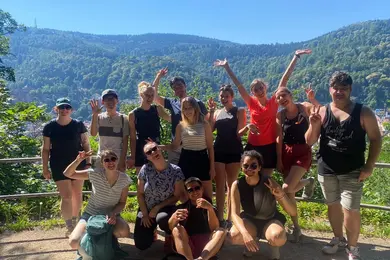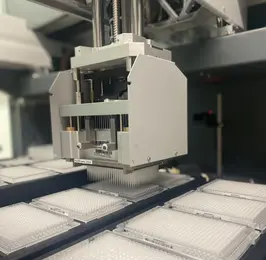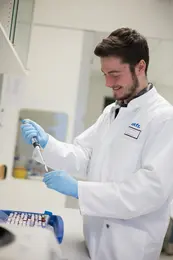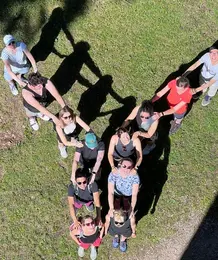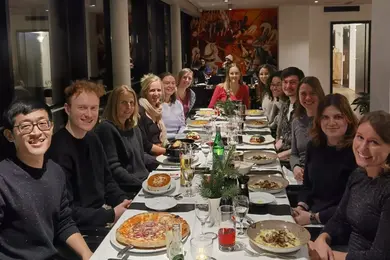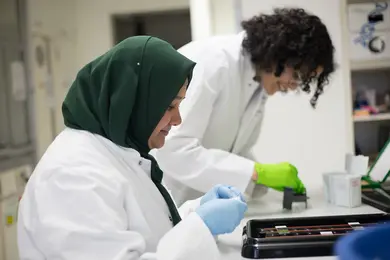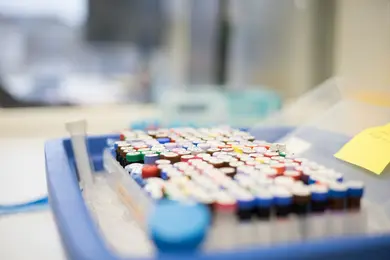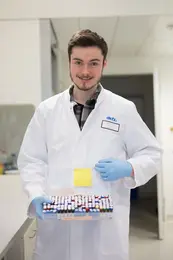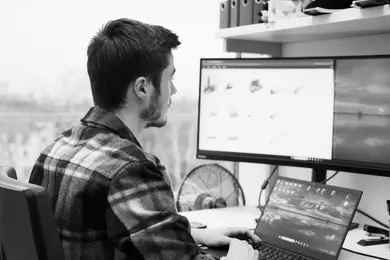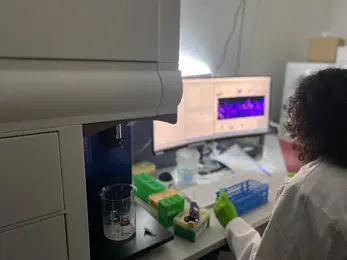B Cell Immunology
- Immunology, Infection and Cancer

Prof. Dr. Hedda Wardemann
Division Head
To guide the development of novel therapies, the Division of B Cell Immunology studies how antigen-receptor specificity determines the clonal evolution of human B and T cell responses in infectious diseases and cancer. The overarching goal is to gain fundamental insights in the molecular and cellular principles that underlie protective B cell immune responses and to translate our findings into clinical application.
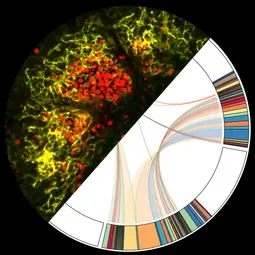
Our Research
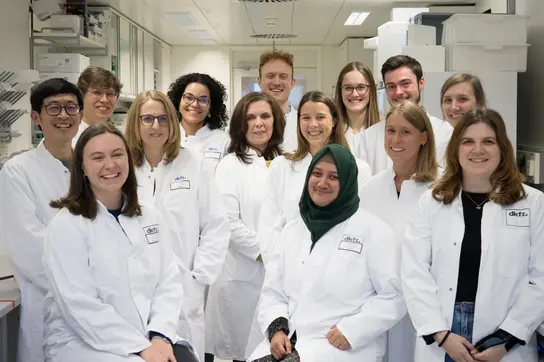
We have developed a high-throughput antibody and T cell receptor repertoire analysis pipeline to measure the diversity and determine the specificity and function of B cells and T cells on single-cell level. We combine this platform with high-dimensional flow-cytometry, single-cell transcriptomics, and spatial proteomics approaches, to gain basic insights in the development of B cell and T cell responses in time and space. While our research focuses on the analysis of human immune responses, we use unperturbed animal models to understand the molecular and cellular mechanisms that distinguish protective from non-protective immune responses in health and disease. By combining this data-driven approach with our deep understanding of the fundamental immunological principles that underlie adaptive immune responses and the formation of immunological memory, we aim to develop strategies to direct antibody responses by vaccination and to identify antibodies and T cell receptors with therapeutic potential.
Projects
Over the years, we gained insights in the fundamental principles that drive B cell antibody responses by studying responses to viral, bacterial, and parasitic pathogens, commensal microbes, vaccines, cancer, and in autoimmunity. Our ongoing projects focus on malaria, SARS-CoV-2 vaccine responses, and paraneoplastic neurological syndromes with the goal to design protective malaria vaccines, to determine the impact of pre-existing humoral immune responses on vaccine responses, and to define the cellular and molecular link between the anti-cancer and anti-brain immune response, respectively.
We work in close collaboration with national and international clinical and academic partners, benefitting from their highly diverse and complementary expertise and joint funding opportunities.
Through the initiative of Dr. Christian Busse, spokesperson of NFDI4Immuno (https://www.nfdi4immuno.de), a large DFG-funded National Research Data Infrastructure (NFDI) consortium, the Division is also active in building an open infrastructure for the FAIR management of immunological data through a network of federated repositories with integrated analysis tools and services.
Malaria immune responses and vaccine development
The malaria parasite Plasmodium falciparum (Pf) with its complex life cycle has developed sophisticated immune evasion strategies to escape the humoral and cellular immune responses of the human host, similar to the complex interplay between cancer cells and anti-tumor responses. In this project, we characterize the human B and T cell responses to natural Pf infection and malaria vaccine candidates at single-cell level to understand the selection and differentiation processes of cells that target these antigens and to identify protective epitopes. By tracking the clonal evolution of the response and through the functional characterization of antigen-receptors, we develop and test ideas for the design of improved malaria vaccines in animal models. Subsequent deep molecular and cellular analyses using diverse single-cell based high-throughput methods allow us to identify parameters that critically define the quality of the vaccine response and associate with protection. The specific focus lies on understanding how to overcome immunodominance, to provide optimal T cell help, and to improve the duration of vaccine responses. Work under this project is funded by the Gates Foundation, a Wellcome Trust Discovery Award (BigFc; https://wellcome.org/grant-funding/people-and-projects/grants-awarded/breadth-igg-fc-antibody-mediated-protective), and the European Union Horizon Europe Research and Innovation Program (CAPTIVATE; https://www.captivate-malaria.eu).
The impact of pre-existing humoral immunity on B cell responses
Through the formation of immune complexes with antigen, serum antibodies modulate vaccine responses positively by promoting B cell activation and antigen-deposition in germinal centers and negatively by blocking access to epitopes. In this project, we aim to determine how pre-existing antibodies impact the cellular selection and differentiation processes of booster B cell vaccine responses in space and time. In mouse immunization experiments with adjuvanted SARS-CoV-2 spike protein as model, we track the dynamic, clonal evolution, and epitope-specificity of the cellular response by combining multi-parameter spectral flow cytometry, single-cell based Ig gene repertoire analyses and paired functional antibody assessments with spatial mass-spectrometry-based proteomics approaches. The work will provide fundamental insights into how soluble antibodies modulate vaccine responses to help guide the timing of homologous boost immunizations.
The pathological role of anti-tumor responses in paraneoplastic neurological syndromes
Paraneoplastic neurological syndromes (PNS) are characterized by severe motoric or mental disfunction caused by autoimmune neural cell damage. The ectopic expression of neural antigens in tumor cells likely drives the development of autoreactive B and T cells that cross the blood-brain barrier. In this project, we characterize the tumor-infiltrating and central nervous system B and T cell response in patients with PNS to determine their role in the anti-cancer response and in brain pathology. We are specifically interested in understanding the cellular origin and antigen specificity of the brain-infiltrating immune cells for the development of targeted prophylactic or therapeutic intervention strategies. The project is funded by the German Research Association as part of the Research Unit SYNABS (Synaptic pathology in autoimmune encephalitis).
Team
- Show profile

Prof. Dr. Hedda Wardemann
Division head
- Show profile

Dr. Catherine Moreau
Scientific project manager
- Show profile

Christoph Tim Pufall
Administrative assistant
- Show profile
Dr. Christian Busse
Senior scientist
- Show profile

Dr. Julia Ludwig
Senior scientist
- Show profile

Dr. Ilka Wahl
Postdoctoral researcher
- Show profile
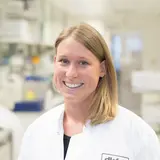
Dr. Theresa Kissel
Postdoctoral researcher
- Show profile
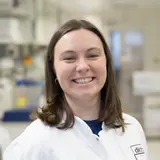
Dr. Gemma Hartley
Postdoctoral researcher
- Show profile
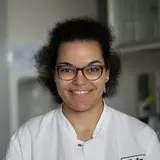
Kassandra Hoetzel
PhD student
- Show profile
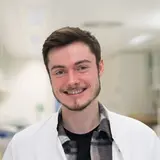
Hendrik Feuerstein
PhD student
- Show profile
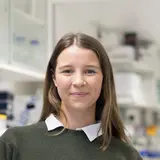
Alina Schneider
PhD student
- Show profile

Adnan Muratovic
PhD student
- Show profile
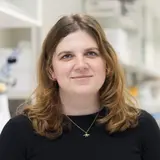
Yasmin Bergmann
Technical assistant
- Show profile
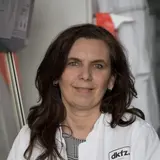
Christine Niesik
Technical assistant
- Show profile
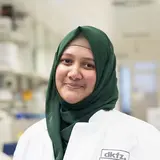
Sabrina Qureshi
Technical assistant
- Show profile

Pierre-Vincenzo De Marinis
Bioinformatician
- Show profile
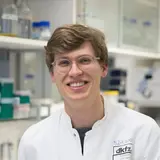
Leonard Lintzen
Student
Selected Publications
Li Z, Obraztsova A, Shang F, Oludada OE, Malapit J, Busch K, van Straaten M, Stebbins E, Murugan R, Wardemann H
Wahl I, Obraztsova AS, Puchan J, Hundsdorfer R, Chakravarty S, Sim BKL, Hoffman SL, Kremsner PG, Mordmüller B, Wardemann H
Rollenske T, Burkhalter S, Muerner L, von Gunten S, Lukasiewicz J, Wardemann H, Macpherson AJ
Murugan R, Scally SW, Costa G, Mustafa G, Thai E, Decker T, Bosch A, Prieto K, Levashina EA, Julien JP, Wardemann H
Imkeller K, Scally SW, Bosch A, Martí GP, Costa G, Triller G, Murugan R, Renna V, Jumaa H, Kremsner PG, Sim BKL, Hoffman SL, Mordmüller B, Levashina EA, Julien JP, Wardemann H
Alumni
PhD students:
Anna Obraztsova (2019-2024) “B cell fate decisions in vaccination: insights into germinal center and plasmablast responses”
Hannah van Dijk (2020-2024) “Single-cell based assessment of the human T cell response against Plasmodium falciparum circumsporozoite protein”
Joshua Malapit (2018-2024) “Insights into Autoimmune Mechanisms and the Pathogenic Role of Tumor-Infiltrating B Cells in Yo-Associated Paraneoplastic Cerebellar Degeneration”
Katharina Imkeller (2014-2018) “Molecular characterization of public anti-PfCSP antibodies in human malaria”
Opeyemi "Ernest" Oludada (2018-2024) “Characterization of human antibodies against Plasmodium falciparum circumsporozoite protein (PfCSP) epitopes”
Rajagopal Murugan (2015-2018) “Protective memory B cell response in controlled human Malaria infection”
Sandro Hoffmann (2019-2023) “A Long Story Short: Improving the B Cell Response to Plasmodium Falciparum Circumsporozoite Protein by Reducing the Number of Repeating NANP-Motifs”
Tim Rollenske (2014-2017)“Humans naturally acquire cross-specific anti-glycan antibodies”
Other Alumni:
Alina Schneider (MSc), Ana-Maria Nitulescu (BSc), Anja Ichters (MSc), Ann-Kathrin Huber (MSc), Caterina Canetta (MSc), Christian Lindner (MSc), Claudia Winter, Francisco Arcila Salamanca (MSc), Friederike Korn (MSc), Gemma Pidelaserra Martí (MSc), Ghulam Mustafa (PhD), Irene Nailain Nkumama (PhD), Jana Lossin (MSc), Josep Subirana, Julia Gärtner, Julia Puchan (MSc), Julian Schliehe-Diecks (BSc), Nina Lobeto-Kramer (MSc), Nyssa Cullin (PhD), Madelaine Stoll, Money Gupta (PhD), Rebecca Hundsdorfer (MSc),Rajagopal Murugan (PhD), Sandro Hoffmann (MSc), Sara Kraker (MSc), Saskia Müller (MSc), Shaumya Kulendran (MSc), Silke Schmidt (MSc), Simone Kocher, Srilakshmy Harikrishnan (PhD), Sophia Nowakowski (BSc), Tizian Decker (Doktorarbeit Medizin)
Get in touch with us

Office Prof. Dr. Wardemann


